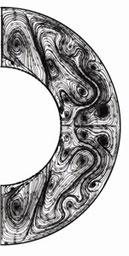Research Projects
Interested in astrophysics? Wondering what research involves?
The Astrophysics group encourages students at all levels to get involved in research. We’ve broken down the pathways for secondary school students, current undergraduates, and research higher degree students.
If you’re are a:
- Secondary school student: Every year, the School of Physics and Astrophysics group host work experience students. You can find out more and apply for the program here.
- Current undergraduate student: Doing research during your bachelors is a great way to build valuable skills and to get a better idea of what research is really like before committing to a Masters or PhD. Undergraduates have the choice to do a research project for credit (See: PHYC30015 Laboratory Work B; SCIE30001 Science Research Project; SCIE30002 Science and Technology Internship) or for pay (typically during the summer). In all cases, the first step is to identify a potential supervisor and research project. We suggest you begin by looking at the webpages of individual faculty members, and then contact the faculty members whose work intrigues you. Their availability may vary — don’t be discouraged if you need to talk to a few people. A snapshot of our research areas and links to faculty home pages can be found here.
- Prospective graduate student: We welcome students interested in pursuing a research higher degree in astrophysics. Projects are on offer year-round for both Masters of Science and PhD programs in the Astrophysics group. As with undergraduate research projects, your first step should be to look over the webpages of individual faculty members, and then contact the faculty members whose work you are interested in. We encourage you to talk with several potential supervisors. A snapshot of our research areas and links to faculty home pages can be found here.

Superfluids in a neutron star. Credit: C Peralta